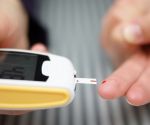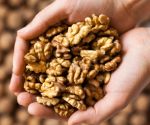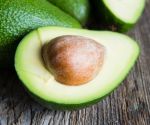Advertisement
Watermelon is a good fruit choice for people with diabetes, but many people mistakenly think that it is not. The reason has to do with the difference between glycemic index and its glycemic load.
The Glycemic Index (GI) is a measure of the effects of carbohydrates on blood glucose levels. Carbohydrates that break down quickly during digestion, releasing glucose rapidly into the bloodstream (like those found in white bread), have a “high GI” (70 or higher); carbohydrates that break down slowly, releasing glucose gradually into the bloodstream (like those in whole grains and legumes), have a “low GI” (55 or lower).
The Glycemic Load (GL) is a ranking system for the glycemic impact of foods, based on their carbohydrate content, portion size, and Glycemic Index. Low = 1 to 10; Medium = 11-19; High = 20 or higher.
As explained in the book The New Glucose Revolution for Diabetes (Marlowe, 2007), the GL was developed by Harvard researchers, who posited that eating a small amount of a high-GI food would have the same effect on blood sugar as would eating large amounts of a low-GI food. Another issue with looking only at the GI of a food is that it’s tied to the number of grams of carbohydrates in that food and, obviously, that number varies by large amounts. Watermelon is a good illustration of this problem. Watermelon’s GI is high, 72. The GI, however, is based not on a normal portion, but on 50g of carbohydrates — whatever the food. To get 50g of watermelon carbs, you’d have to eat almost 5 cups. GL combines both the quality and the quantity of the actual carbohydrates consumed — and provides one “number.” The GL of one cup of watermelon is about 9, which is low.
The Glycemic Index (GI) is a measure of the effects of carbohydrates on blood glucose levels. Carbohydrates that break down quickly during digestion, releasing glucose rapidly into the bloodstream (like those found in white bread), have a “high GI” (70 or higher); carbohydrates that break down slowly, releasing glucose gradually into the bloodstream (like those in whole grains and legumes), have a “low GI” (55 or lower).
The Glycemic Load (GL) is a ranking system for the glycemic impact of foods, based on their carbohydrate content, portion size, and Glycemic Index. Low = 1 to 10; Medium = 11-19; High = 20 or higher.
As explained in the book The New Glucose Revolution for Diabetes (Marlowe, 2007), the GL was developed by Harvard researchers, who posited that eating a small amount of a high-GI food would have the same effect on blood sugar as would eating large amounts of a low-GI food. Another issue with looking only at the GI of a food is that it’s tied to the number of grams of carbohydrates in that food and, obviously, that number varies by large amounts. Watermelon is a good illustration of this problem. Watermelon’s GI is high, 72. The GI, however, is based not on a normal portion, but on 50g of carbohydrates — whatever the food. To get 50g of watermelon carbs, you’d have to eat almost 5 cups. GL combines both the quality and the quantity of the actual carbohydrates consumed — and provides one “number.” The GL of one cup of watermelon is about 9, which is low.
Continue Learning about Diabetes
Important: This content reflects information from various individuals and organizations and may offer alternative or opposing points of view. It should not be used for medical advice, diagnosis or treatment. As always, you should consult with your healthcare provider about your specific health needs.










